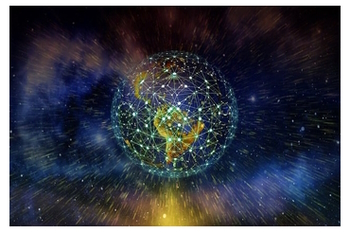
Corporations have been creating “safe spaces” for themselves for a while, and while that can be read as either good or bad depending on how you feel about things, let’s just accept that as an objective truth.
Disney took things from the public domain and copyrighted their versions, making them as ubiquitous as their marketing – and then worked hard to close the door for others to do the same with their works which should have passed to the public domain.
The Sonny Bono Act, or Mickey Mouse Protection Act extended copyright to keep things from going into the public domain:
“…Following the Copyright Act of 1976, copyright would last for the life of the author plus 50 years (or the last surviving author), or 75 years from publication or 100 years from creation, whichever is shorter for a work of corporate authorship (works made for hire) and anonymous and pseudonymous works. The 1976 Act also increased the renewal term for works copyrighted before 1978 that had not already entered the public domain from 28 years to 47 years, giving a total term of 75 years.[3]
The 1998 Act extended these terms to life of the author plus 70 years and for works of corporate authorship to 120 years after creation or 95 years after publication, whichever end is earlier.[4] For works published before January 1, 1978, the 1998 act extended the renewal term from 47 years to 67 years, granting a total of 95 years.
This law effectively froze the advancement date of the public domain in the United States for works covered by the older fixed term copyright rules…”
Copyright Term Extension Act, Wikipedia, accessed on 16 May 2023.
Corporations acted in their own self-interest. Lawrence Lessig’s Free Culture was the first I read of it, but I don’t know that he was the first that noted it. They created a safe space for their copyrights while they had their roots in the public domain.
The world is full of other examples.

Bill Gates would dumpster dive and study code printouts, among other thing. As the famous founder of Microsoft, lots of people don’t seem to know that Microsoft didn’t start without understanding – and borrowing, if not buying – code from others. There’s nothing particularly shameful about it.
“The best way to prepare is to write programs, and to study great programs that other people have written. In my case, I went to the garbage cans at the Computer Science Center and I fished out listings of their operating systems.”
Bill Gates, Interview with Suzanne Lammers, 1986.
I think any programmer would disagree with the sentiment. Yet, the same Bill Gates who did that also wrote an open letter to hobbyists in 1976 that did not reflect that sentiment:
“…The feedback we have gotten from the hundreds of people who say they are using BASIC has all been positive. Two surprising things are apparent, however, 1) Most of these “users” never bought BASIC (less thank 10% of all Altair owners have bought BASIC), and 2) The amount of royalties we have received from sales to hobbyists makes the time spent on Altair BASIC worth less than $2 an hour.
Why is this? As the majority of hobbyists must be aware, most of you steal your software. Hardware must be paid for, but software is something to share. Who cares if the people who worked on it get paid?…”
“An Open Letter To Hobbyists“, Bill Gates, cited in the New York Times archives.
Most people would say, “Well, he has a point.” And he did – in protecting a business model he was creating which kept people from being able to view the source code to learn from it. Was it a bad thing? A good thing? It doesn’t matter, it was a thing.
At the time, it was a bunch of scattered hobbyists before the Internet against a corporation that could afford lawyers and marketing. It was the wild, wild west of personal computing.
The above examples are 2 of many ‘negotiations‘ between the public and corporations, though with the increased political influence corporations have through lobbyism – and with money now being free speech – it’s hard to consider it a legitimate negotiation.
If you have 45 minutes, Pirates of Silicon Valley is worth watching.
The point is that corporations always do things like this, for better or worse and for better and worse. And with the emergence of artificial intelligence-like technologies, while the safe space of creators is being abstracted away into statistics. By extension, this also applies to the privacy of everyone’s data.
My thought is, the greater the wings, the more confident the bird should be where it roosts. If corporations are indeed made of individuals working toward common goals and are creating things, that’s great! But it should not come at the cost of competition, which is one of the founding principles of capitalism… which corporations tend to cite only when convenient.
“Do as we say. Not as we do.”